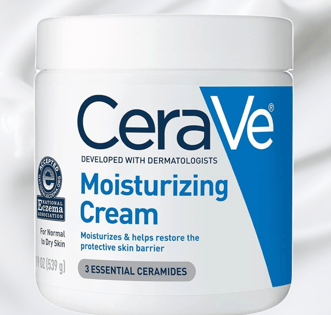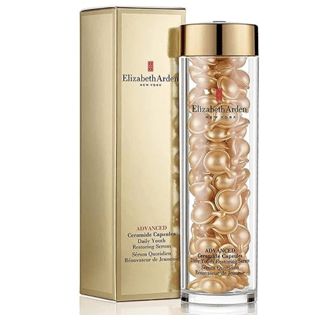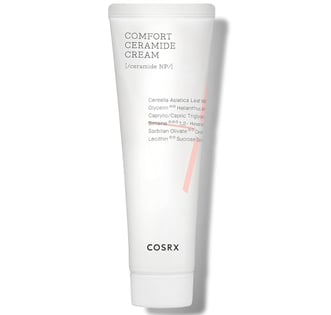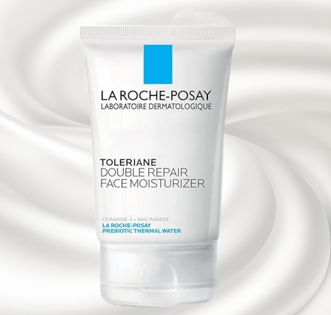
Ceramides Explained: The Secret to a Stronger, Healthier Skin Barrier
SKIN CARE
6 min read


When it comes to skincare, certain ingredients stand out for their ability to transform our skin. One such powerhouse is ceramides. But what exactly are ceramides, and why should one consider adding them to skincare routine? Let’s dive in.
What Are Ceramides?
Ceramides are essential waxy lipid molecules that form a critical component of our skin's structure. Acting as the skin's natural barrier, ceramides make up approximately 50% of the outermost layer of the skin, known as the stratum corneum. These molecules play an indispensable role in maintaining skin health by keeping the skin hydrated, resilient, and protected from external aggressors.
The Science Behind Ceramides
At the molecular level, ceramides are a type of sphingolipid, which is composed of a sphingosine base linked to a fatty acid. This unique structure allows ceramides to function effectively as a binding agent, holding skin cells together like mortar between bricks. This bond is crucial for creating a strong barrier that prevents moisture loss while shielding the skin from environmental pollutants, irritants, and pathogens.
The skin's barrier is not just a physical shield; it's also a vital component of overall skin health. When the barrier is intact and functioning properly, it helps maintain the skin's hydration levels, preventing dryness, flakiness, and irritation. However, when ceramide levels are depleted, the skin barrier becomes compromised. This can lead to a range of issues, including increased sensitivity, dryness, and a heightened risk of conditions like eczema and psoriasis.
Natural vs. Synthetic Ceramides
In skincare formulations, ceramides can be derived from natural sources or synthesized in laboratories. Natural ceramides are typically extracted from plants like wheat germ, rice bran, and soybeans. These plant-derived ceramides are valued for their ability to integrate seamlessly into the skin's natural lipid barrier, making them an excellent choice for those who prefer products with naturally sourced ingredients.
On the other hand, synthetic ceramides are engineered to closely mimic the structure and function of natural ceramides. The advantage of synthetic ceramides lies in their stability and consistency, which ensures that they perform reliably in skincare formulations. Synthetic ceramides are often used in products designed for sensitive skin, as they are less likely to cause irritation and are easier to formulate into effective skincare products.
Benefits of Ceramides
Ceramides offer a multitude of benefits that make them a cornerstone of any effective skincare routine. Here are some of the key advantages of incorporating ceramides into your daily regimen:
Improved Hydration: Ceramides play a crucial role in maintaining the skin's moisture levels. By forming a protective layer on the skin's surface, they help to lock in moisture, preventing dryness and promoting a smooth, supple complexion.
Strengthened Skin Barrier: One of the primary functions of ceramides is to reinforce the skin's natural barrier. A robust skin barrier is essential for protecting the skin from environmental stressors such as pollution, UV rays, and harsh weather conditions. By strengthening this barrier, ceramides help to reduce the risk of irritation and damage caused by external factors.
Therapeutic Effects on Skin Conditions: Ceramides have been shown to be particularly effective in managing certain skin conditions, such as eczema and psoriasis. Research indicates that ceramide-rich formulations can help to alleviate symptoms associated with these conditions, such as dryness, scaling, and inflammation, by restoring the lipid balance in the skin.
Anti-Aging Benefits: As we age, the natural levels of ceramides in our skin begin to decline. This decrease in ceramides can lead to increased dryness, the formation of fine lines and wrinkles, and a loss of elasticity. By replenishing lost ceramides, skincare products can help to combat these signs of aging, keeping the skin firm, smooth, and youthful.
Who Should Use Ceramides?
Ceramides are beneficial for all skin types, but certain individuals may find them particularly advantageous:
Dry Skin: If you struggle with dry or dehydrated skin, ceramides can help to restore moisture and strengthen the skin's barrier, preventing further moisture loss.
Sensitive Skin: Those with sensitive skin can benefit from the soothing and protective properties of ceramides, which help to reduce irritation and enhance the skin's resilience.
Aging Skin: As natural ceramide levels decline with age, incorporating ceramide-rich products into your skincare routine can help to restore elasticity, smoothness, and firmness, reducing the appearance of fine lines and wrinkles.
Eczema and Psoriasis: Individuals with skin conditions like eczema or psoriasis may find relief in ceramides, as these lipids help to repair and maintain a healthy skin barrier, reducing the symptoms associated with these conditions.
When and How to Use Ceramides
Ceramides can be used both in the morning and evening, depending on your skin's needs. In the morning, they help to protect the skin from environmental stressors, while in the evening, they aid in repair and hydration as the skin undergoes its natural regenerative processes.
To incorporate ceramides into skincare routine, follow these steps:
Cleanse: A gentle cleanser is necessary to remove dirt, oil, and impurities from skin.
Apply Ceramide-Infused Products: After cleansing, apply a ceramide-based serum or moisturizer. If you're using a ceramide serum, follow it up with a moisturizer to lock in hydration.
Layering with Other Ingredients: Ceramides work well with other hydrating ingredients, such as hyaluronic acid and glycerin. However, be cautious when combining ceramides with potent actives like retinoids or strong acids, as these can sometimes interfere with ceramide function or cause irritation. Always layer products from lightest to heaviest; for example, if you're using hyaluronic acid along with ceramides, apply the hyaluronic acid first, followed by the ceramide product.
Seal in with Moisturizer: If your ceramide product isn’t a moisturizer, apply your regular moisturizer afterward to seal in the benefits.
Use Sunscreen: Applying sunscreen is essential. Make sure to end your morning skincare routine with a broad-spectrum sunscreen to protect skin from UV damage
Do's and Don'ts with Ceramides
To maximize the benefits of ceramides, it's essential to follow certain best practices while avoiding common mistakes:
Do's:
Patch Test: Always perform a patch test before fully integrating a new ceramide product into your routine to ensure it doesn't cause irritation.
Combine with Hydrating Ingredients: Ceramides work synergistically with ingredients like hyaluronic acid and glycerin to enhance skin hydration and barrier function.
Consistency is Key: Regular use of ceramides is crucial for maintaining a strong skin barrier. Incorporate them into your daily skincare routine for best results.
Don'ts:
Avoid Over-Exfoliation: Excessive exfoliation can strip the skin of its natural oils and compromise the skin barrier, counteracting the benefits of ceramides.
Don't Skip Moisturizer: Even though ceramides enhance barrier protection, they should not replace your regular moisturizer. Layer a moisturizer over ceramide products to lock in hydration.
Don’t mix with potent actives initially: Be cautious when using ceramides with high concentrations of acids or retinoids, as these can potentially interfere with the efficacy of ceramides. Introduce Ceramides gradually, especially if using them alongside strong actives like retinoids or acids.
Recommended Ceramide Products
Here are some top-rated ceramide-infused products to consider:
This dermatologist-recommended cream contains ceramides 1, 3, and 6-II, along with hyaluronic acid, to restore the skin's natural barrier and provide long-lasting hydration.
A rich, hydrating cream that combines multiple ceramides with soothing ingredients like panthenol and beetroot extract, making it ideal for dry and sensitive skin.
Elizabeth Arden Advanced Ceramide Capsules:
These luxurious capsules deliver a concentrated dose of ceramides and fatty acids to improve skin firmness and elasticity.
CosRX Balancium Comfort Ceramide Cream:
A lightweight moisturizer designed for oily or combination skin, featuring a blend of ceramides and Centella asiatica extract to strengthen the skin barrier.










